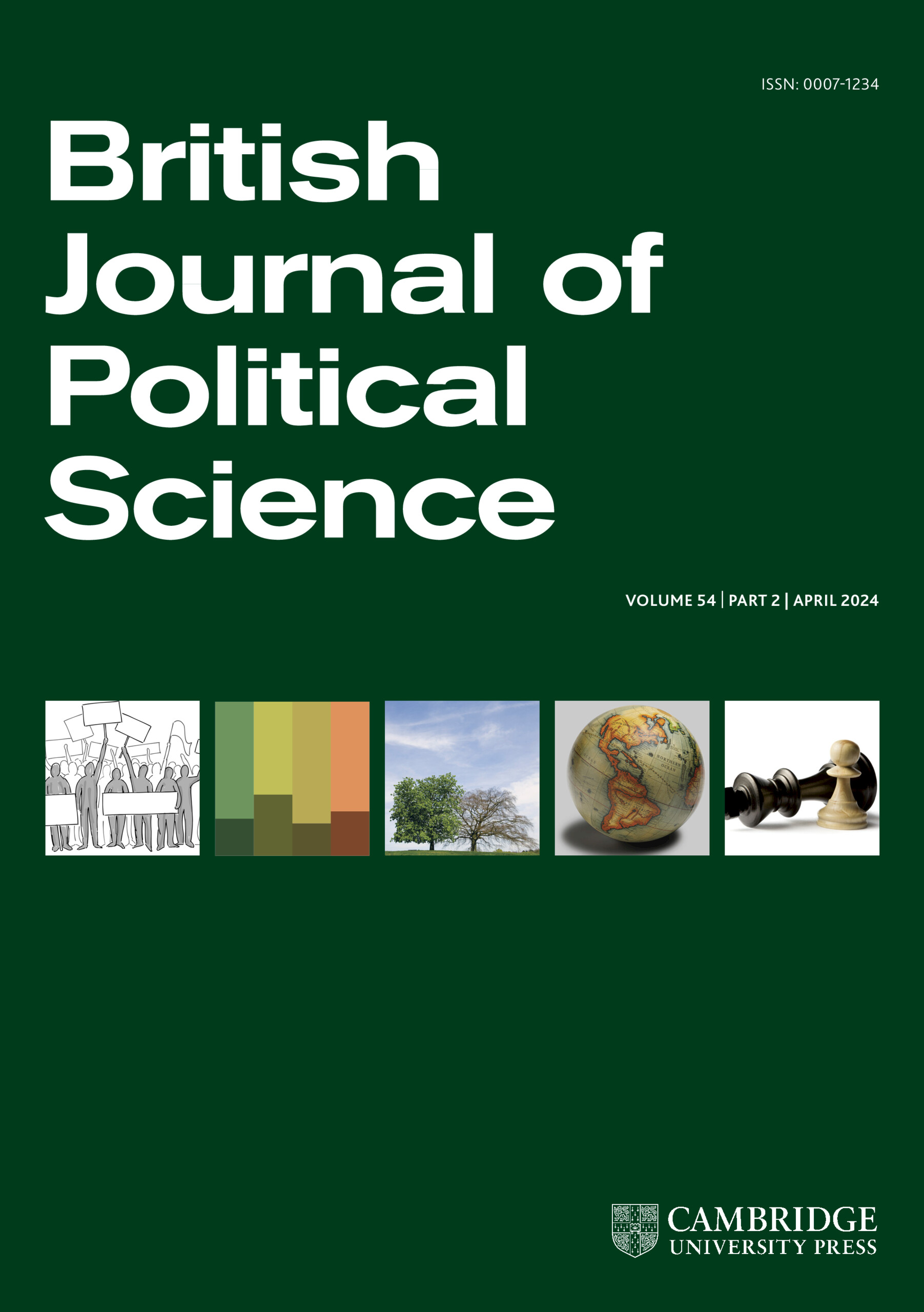赋予移民在全国大选中的投票权:来自瑞典行政数据的经验证据
IF 4.7
1区 社会学
Q1 POLITICAL SCIENCE
引用次数: 0
摘要
面对日益增长的跨境移民,许多国家已将当地投票权扩展至非公民居民。然而,经验证据表明,与公民相比,非入籍移民的投票率较低。这就提出了如何解释这种差异的问题。一个常见的答案是,非公民居民投票率低的主要原因是这一群体的社会经济构成以及适应新政治制度所面临的挑战。另一种讨论较少的可能性是,投票率低与选举的性质有关。因此,我们研究了非公民的投票率是否因为他们只被允许参加地方选举而受到影响。基于使用瑞典行政数据的回归不连续设计(RDD),我们发现,如果将非公民的投票权扩大到全国范围,投票率可能会提高 10-20 个百分点。本文章由计算机程序翻译,如有差异,请以英文原文为准。
Granting Immigrants the Right to Vote in National Elections: Empirical Evidence from Swedish Administrative Data
Faced with rising levels of cross-border migration, many countries have extended local voting rights to non-citizen residents. However, empirical evidence indicates that voter turnout among non-naturalized immigrants is lower when compared to citizens. This raises the question of how to explain this difference. A common answer is that the low turnout rates of non-citizen residents are primarily due to the socio-economic composition of this group and the challenges involved in adapting to a new political system. An alternative but less discussed possibility is that the low turnout concerns the nature of the elections. Hence, we examine whether the turnout of non-citizens is hampered because they are only allowed to partake in local elections. Based on a regression discontinuity design (RDD) using Swedish administrative data, we find that turnout could increase by 10–20 percentage points if the voting rights of non-citizens were extended to the national level.
求助全文
通过发布文献求助,成功后即可免费获取论文全文。
去求助
来源期刊

British Journal of Political Science
POLITICAL SCIENCE-
CiteScore
8.70
自引率
4.00%
发文量
64
期刊介绍:
The British Journal of Political Science is a broadly based journal aiming to cover developments across a wide range of countries and specialisms. Contributions are drawn from all fields of political science (including political theory, political behaviour, public policy and international relations), and articles from scholars in related disciplines (sociology, social psychology, economics and philosophy) appear frequently. With a reputation established over nearly 40 years of publication, the British Journal of Political Science is widely recognised as one of the premier journals in its field.
 求助内容:
求助内容: 应助结果提醒方式:
应助结果提醒方式:


